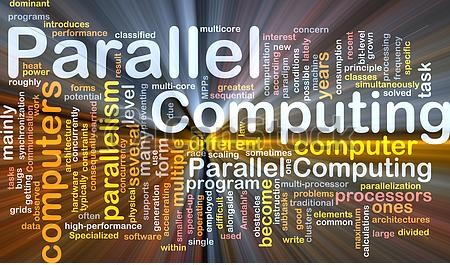- Publications
-
Tensity-Aware Optimized Scheduling of Parallel Real-Time Tasks on Multiprocessor
A Mukherjee, T Mishra, T Chantem, N Fisher
IEEE International Conference on Embedded Software and Systems (ICESS), 2020
-
An Integrated Energy Management Framework for Multiple Side-by-Side Applications on Smartphones
A Mukherjee, T Chantem
IEEE International Conference on Embedded Software and Systems (ICESS), 2020
-
Optimized trusted execution for hard real-time applications on COTS processors
A Mukherjee, T Mishra, T Chantem, N Fisher, R Gerdes
Proceedings of the 27th International Conference on Real-Time Networks and Systems (RTNS), 2019
-
Energy management of applications with varying resource usage on smartphones
A Mukherjee, T Chantem
IEEE Transactions on Computer-Aided Design of Integrated Circuits and Systems (TCAD)/ESWEEK, 2018
-
Systemic Approach towards Voice Recognition and Data Reproduction through an Automated Speech Recognized Mechanical Pen
A Mukherjee, G Rajput
International Conference on Signals, Systems and Automation (ICSSA), 2011
- Academic Teaching
-
Undergraduate/Graduate Instructor, Virginia Tech
Advanced Real-Time Systems (ECE 4450/5550G), Spring 2020
Designed hands-on projects and assignments to implement real-time task scheduling and resource management policies with FreeRTOS on Arduino Uno. -
Undergraduate/Graduate Teaching Assistant, Utah State University
Real Time Systems (ECE 5780/6780), 2014-16
Digital Circuit Design (ECE 2700), 2012-13 -
Guest Lecturing, Virginia Tech
Advanced Real-Time Systems (ECE 4450/5550G), Spring 2020
Topic: Non-periodic real-time scheduling and directed acyclic graph based real-time execution model
Cyber-physical systems security (ECE 6504), Fall 2019
Topic: ARM’s trusted execution environment (TEE)-based software security standards, secure hardware-software co-design in mission-critical cyber-physical systems
Intro to Unix for Engineers (ECE 2524), Fall 2019
Topic: Linux software security, filesystem security, secure software programming and update standards

I am a senior embedded software engineer at Lucid Motors based in Newark, CA. I am working with the ADAS team to implement an over-the-air secure update framework through trusted execution environments (TEEs) in their flagship EV, Lucid Air, scheduled for release in February 2021.
I received my PhD from Virginia Tech, USA in 2019. I also worked under Dr. Tam Chantem as a Postdoctoral Associate at the RT-X Lab in Virginia Tech, Arlington, VA. Before that, I received my Bachelors degree in Electronics and Communication Engineering from West Bengal University of Technology, India. My research focused on energy-aware and resource-aware hardware-software co-design of real-time embedded systems, and embedded software and system security through TEEs.
Resume Google Scholar Github LinkedIn

Energy Management in Smartphones
While simultaneous side-by-side execution of multiple applications in split-screen mode on smartphones improves
quality-of-service (QoS) for end-users, it also results in increased power consumption and reduced battery lifetime. Saving
energy when multiple concurrent applications run side-by-side is extremely challenging since applications often utilize the
same shared system resources at the same time, and resource needs change over time. We study and predict
application usage patterns in smartphones (through static/dynamic profiling and ML techniques),
and implement novel energy-aware resource management techniques through holistic DVFS frameworks in Android OS.
[ES Week '18] [ICESS '20]
Top

Optimizing Trusted Execution in Real-Time Systems
Trusted execution environments (TEE) provide industry standard security and isolation in IoTs but its implementation
through secure monitor calls (SMC) attribute to large time overhead and weakened temporal predictability, potentially prohibiting
the use of TEE in hard real-time systems. We explore solutions where multiple trusted execution sections are fused together to
amortize TEE execution overhead and improve predictability through minimized I/O traffic and reduced switching between normal mode
and TEE mode of execution. We also present techniques to enforce the correct timing requirement of a task, along with a sufficient test
for schedulability in uniprocessors.
[RTNS '19]
Top

Resource-Aware Parallel Execution in Real-Time Systems
The federated scheduling framework is a popular multicore scheduling policy for parallel periodic real-time tasks that are
often modeled as directed acyclic graphs (DAGs). However, it often over-estimates the processing requirements of parallel task execution,
resulting in acute resource under-utilization of available processing capacity in an already resource-constrained system. We experiment to
reduce resource under-utilization by proposing a task transformation mechanism where compatible DAG tasks are fused and transformed to
opportunistically reclaim the usable utilization of the system.
[ICESS '20]
Top